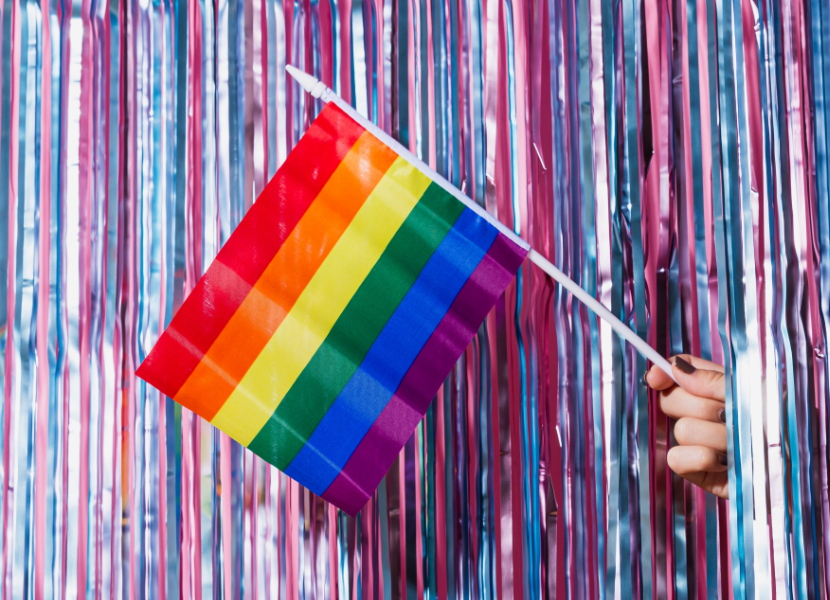Ask A Sex Therapist: I’m confused about my sexual orientation. Help!
WORDS BY LAURA MIANO
Sexuality is fluid.
Laura Miano is a sex therapist, director of evidence-based therapy practice Miano Clinical Sexology, and co-founder of sexual wellness brand Posmo. Her mission is to empower individuals to embrace their unique sense of sexuality and achieve a more fulfilling sex life. To learn more about her, follow @lauramianosexology.
“I’m confused about my sexual orientation. Help!” – Feeling Confused
Hi Feeling Confused,
Thanks for reaching out! You are not alone in feeling confused about your sexual orientation. In our social world, where we love to neatly categorise virtually everything, trying to sum up our sexuality with one word can feel stressful as hell. To help you navigate this, it’s important that you understand what sexuality is in the first place.
Sexuality can be broken into three branches termed ‘The Sexual Trichotomy’: your sexual behaviour, your sexual orientation and your sexual identity. The first refers to the people you have sex with, the second refers to the people you have feelings and attractions towards, and the third is how you identify or label yourself i.e. gay, straight, queer, lesbian.
Oh, you want more taboo talk? You’ve come to the right place. Right this way.
When you say you are confused about your sexual orientation, this actually only means the people who you have sexual feelings and attractions towards. It doesn’t necessarily have to involve your identity or a label that you might think you need to attach to it. These three branches I mentioned, they run on separate continuums, meaning they might be related but they don’t have to reflect one another. For example, you can be attracted to the opposite sex, sleep with people of the same sex, and identify as lesbian. You can also identify as straight, be attracted to the same sex and sleep with the same sex.
The point I’m making here is that your ‘label’ is whatever feels right for you. It doesn’t necessarily have to reflect your behaviours or attractions. Whatever you think is most true to what you feel internally is going to be right. Affirm what you actually feel, not what you think you should feel.
You might be thinking, ‘But nobody does that! Doesn’t everyone’s sexual orientation make sense to them and fit into one label or another?’ Nope!
Research has shown that many people use more than one label to describe their sexual identity, and most people who have a certain identity rarely adhere to it strictly over their lifetime. It’s super hard to sum everything up with one word – you are more complex than that! So when you are saying you’re confused about your sexual orientation, what is it that you are referring to? Is it the people you are sleeping with? Your romantic and sexual desires? The community you belong to? Is it a rejection of heteronormativity? An internal sense of self? These are all different things!
If you don’t know, that’s absolutely okay! You don’t have to; ambivalence is totally fine. You don’t need to force yourself into a certain category. In fact, you can just exit the whole system of these categories altogether, if you feel that way inclined. Sexual orientation is a social construct. If you are forcing yourself to fit into something that doesn’t feel right, but the others don’t feel right either, you actually don’t need to fit into any!
Sexuality is fluid and our language around it is always changing. This stuff kept me up at strange hours of the morning reading scientific journals during my studies. It’s called queer theory and it’s fascinating! So, if your confusion is causing you distress, spend time being curious about your sexual and romantic desires, without getting caught up in the socio-political meaning of a certain ‘identity’.
Hearing this might be a relief. But I’m also cognisant of the fact that maybe you want to subscribe to this labelling system. It might be important to you. And that’s also great! Any journey to self-affirmation is going to be a monumental and special one.
In the case of sexual identity, changing yours might bring with it a sense of grief over your previous identity. If you are moving away from heterosexuality, it might also involve an element of shame due to internalised heterosexism. That is, self-discrimination because heterosexuality is the presumed ‘normal’. A sexual identity in today’s climate means so much more than sex. It’s politically, institutionally, socially and culturally significant.
For some, this might be daunting. But, like I said, nothing is more empowering than knowing who you are. Despite the challenges that identifying as LGBTIQA+ might bring, affirming your identity is a marker of celebration, inclusion and pride. The research also agrees with this! When you know yourself, it feels good.
This also doesn’t mean you need to go through the process of ‘coming out’. These days we are switching the language to ‘letting in’. Your identity is a special space and one that you don’t need to share with everyone if you don’t want to – especially if it causes you hardship. Your boss, your right-wing grandparents – they really don’t need to know about your sexual identity unless you truly want to tell them. For many, unapologetically sharing their identity is a form of activism and can be deeply healing, but for others it’s scary and unpleasant. The cool thing is, there are no rules. You decide what you do with your own information.
Regardless of where you are with all of this, you most definitely aren’t alone on this journey. There are people and resources that can help you. Speak to an LGBT-friendly therapist, visit sites such as Queer Space, and reach out to friends and family for support.
And remember, as identities can and often do shift, this might be the start of a lifelong journey through the dynamics of sexuality. Be kind to yourself and approach each change with curiosity. Our human experience is a pretty incredible thing – never oversimplify it.
See the other instalments in our Ask A Sex Therapist series here.













